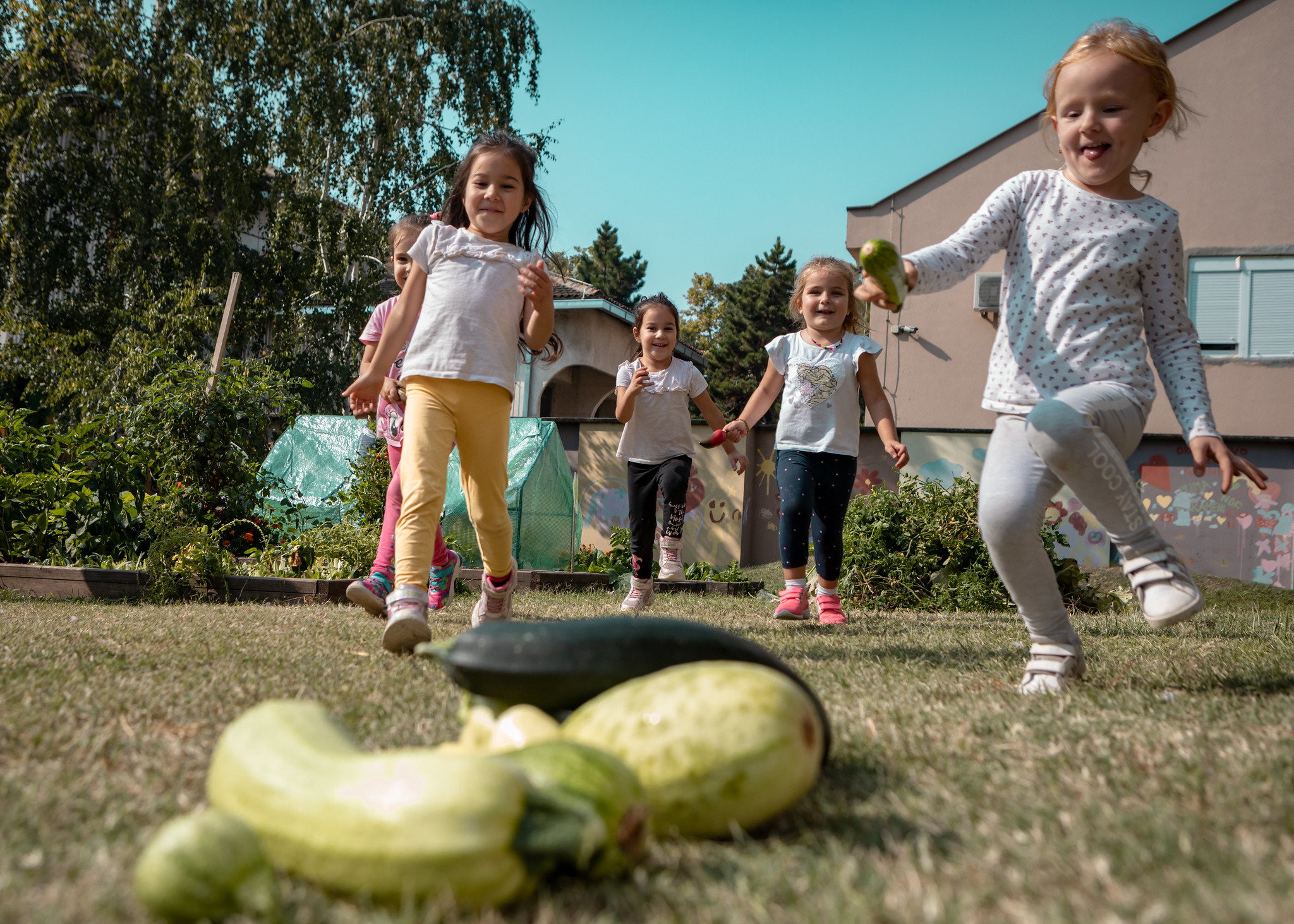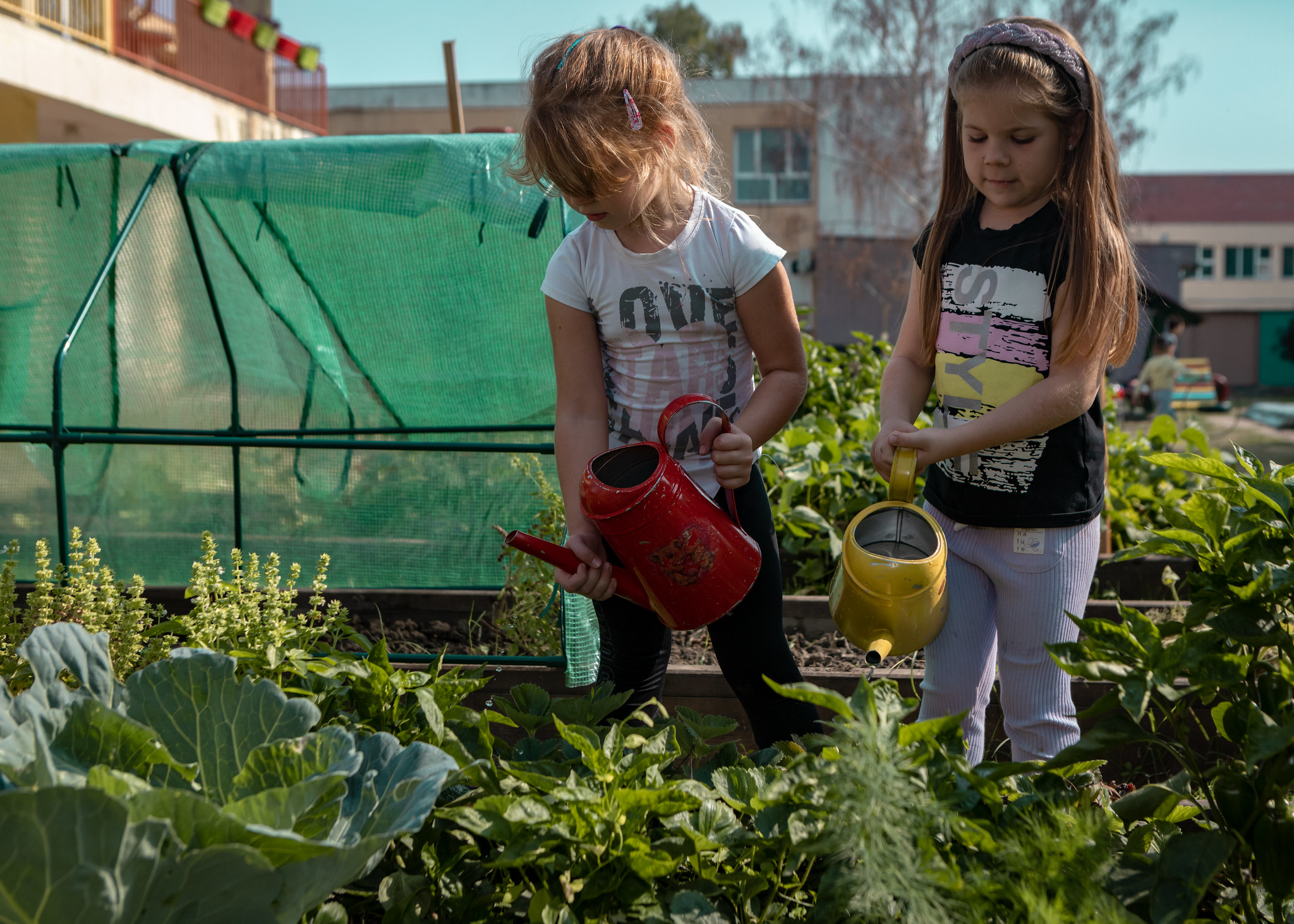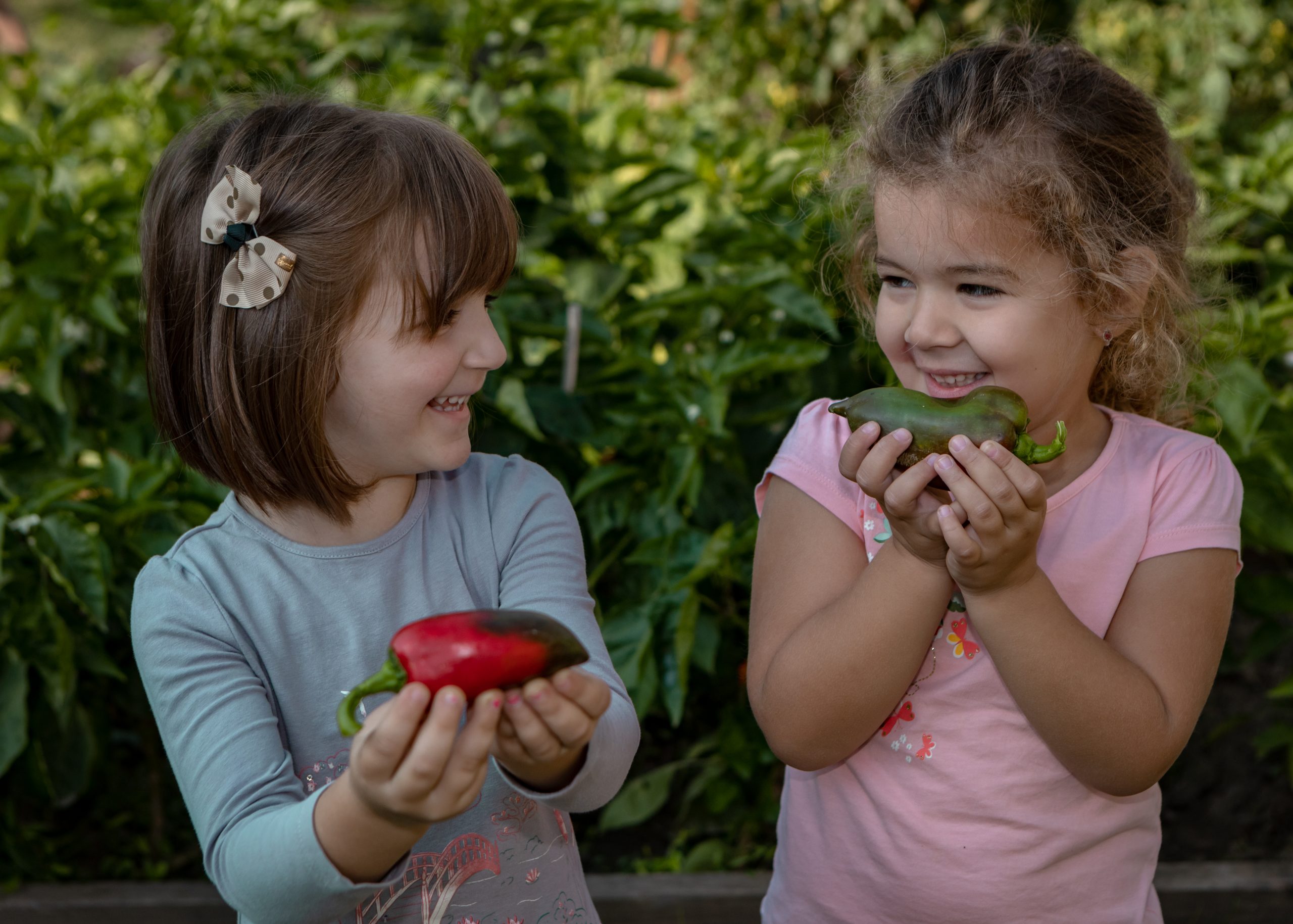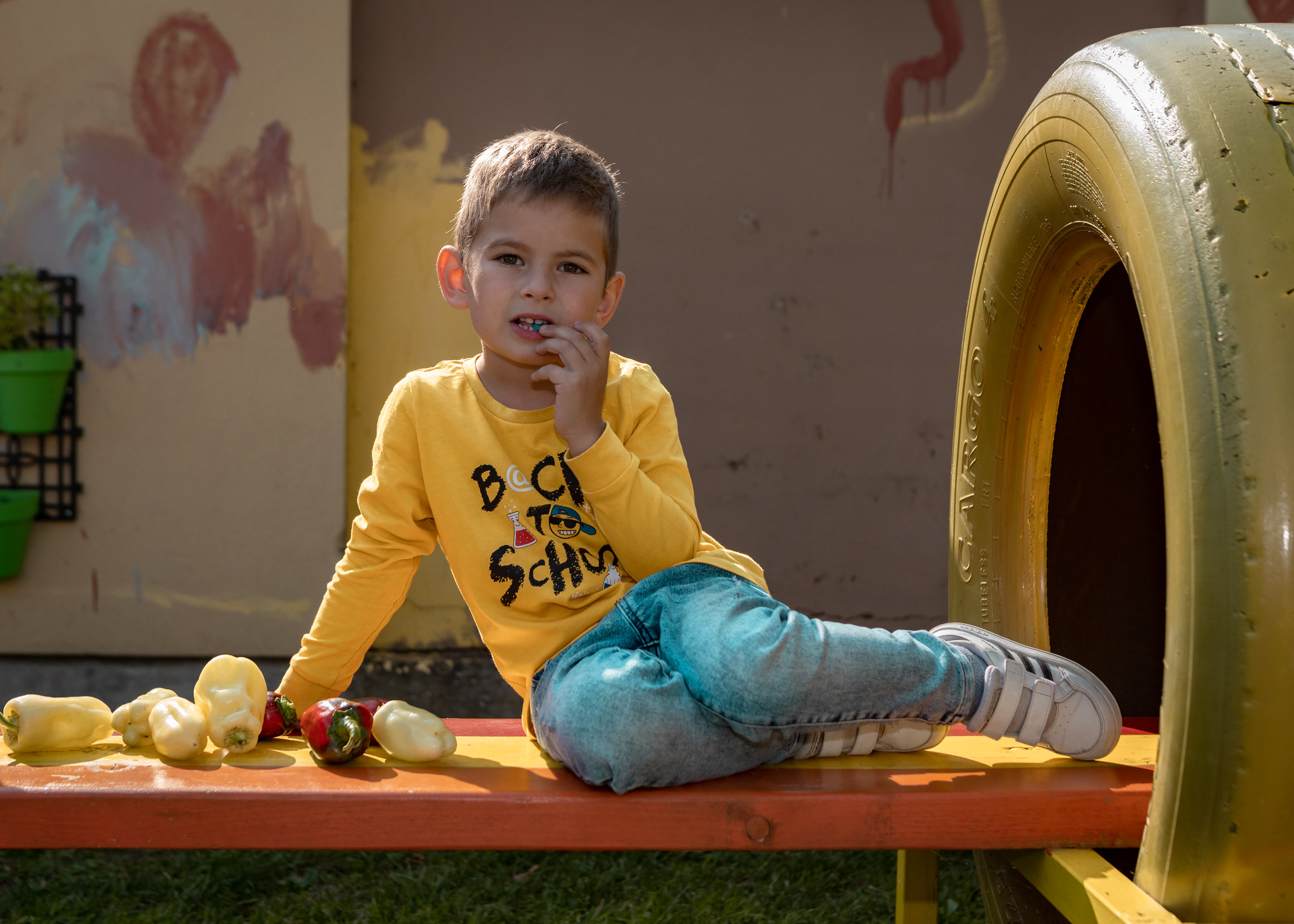Younger generations are increasingly deprived of the natural world, but the solution to their nature-deficiency is not to simply throw them into nature. Kids deserve more from the natural world than to only be exposed to organized outdoor play or over-supervised street play; they deserve to grow with nature. That’s why each child should have a garden of their own.
Children Need to Build a Relationship with Nature
As our lives quickly move into unknown territory, we may wonder what answers to provide our children to guide them through such an uncertain future. How will they live? As cities overpopulate and the gardens in the countryside are uncultivated, children around the world collectively adapt to see nature and themselves as separate entities. We may begin to wonder: what kind of climate will they come to know? The most begging question being, will they know how to survive?
Concrete jungles and poor air quality have become our new normal. More fruits and vegetables are available year-round in grocery stores, enabling us to lose the simple knowledge of seasonal crops. In recent years, children spend more time indoors and in front of screens; an increasing habit especially since the COVID-19 pandemic and transition to online schooling. Such normalization needs to be counterbalanced because each day our children grow further from nature and, inherently, from themselves. We have to provide opportunities that allow them to build a relationship with nature; one where the child and the landscape coexist rather than one where the child observes nature from a distance. That’s how we ensure that our children will adapt to the changing world while preserving natural practices. It’s imperative that we create everyday opportunities to help foster young stewards of the natural environment.

A garden can teach children how to give back to nature rather than take from it. Within the “ABC of Better Me” program, Novak Djokovic Foundation teaches children how important it is to live in accordance with nature.
-
Co-existence
Caring for a garden is a great way to teach kids how to coexist with nature. Our first step to gaining respect towards earth is to learn from nature rather than exploit it. A garden can teach kids how to give back to their landscapes, rather than take from them. Gardens teach kids that they do not need to leave the city or the suburbs to be in touch with the environment. Sustainable and healthy city life is achievable if we consciously create ways for nature to thrive with our built environment. Teaching children to be ecologically friendly also helps with keeping them grounded. It shows them to be aware of their impact through co-existence rather than dominance over nature. This helps children realize their place and role in nature is not superior.
-
Creating Access to Nature
The impending climate crisis makes it clear that our children are inheriting a problem they cannot solve by the time they are old enough to understand and attempt to do something about it. While we are all at risk, climate change disproportionately affects children of color as well as those of poorer backgrounds. Nature often isn’t accessible to these children and children who live in cities also feel this burden. What we can do is design natural environments that are incorporated into daily life and accessible to all. Creating access to nature for these children can start with their own garden.

Through “ABC of Better Me”, children learn about the importance of natural processes and seasonal fruits and vegetables.
Although a great deal of the responsibility for climate change is due to corporations, and at times it can feel like the situation is out of our hands, we can still ease our climate anxiety by teaching younger generations how important individual responsibility is and how great our collective impact can be. When we have this bond with the earth, we learn to both lessen and improve our individual impacts. We also raise a generation of environmentally-conscious human beings.
-
Building a Relationship
It’s great to incorporate nature into education, having more outdoor classrooms, and embracing forest learning, but we need to take things a step further. Rather than just learning about nature and taking children into nature, we need our children to establish emotional feelings of responsibility towards nature. They need to feel their impact and build a relationship with nature rather than learn about one. Finding ways to allow children the opportunity to interact with nature can include giving them space to build their own garden. Even one plant can teach a child immense responsibility while simultaneously enhancing their connection with nature.

From A to Z: ABC of Better Me enables children to acquaint themselves with fruits and veggies that they otherwise would be able to see only at street markets and supermarkets!
Having a garden can instill responsibility in children and while there is a myriad of ways to teach responsibility, parents often turn to pets. Nevertheless, plants, like pets, are living things that require time and attention to ensure their survival. As important as it is to teach children to care for and respect animals, plants offer a different kind of respect. This respect cannot be found in the innocence of an animal but in the power of nature. Learning to honor the home we inhabit, creates a closer connection to nature that can help reduce stress in children and teach them how to mindfully approach situations later in life. Bonding with nature early on can contribute to a child being more active outside and more mindful of their food from a young age. When you have a relationship with nature, the possibilities are endless.
How to help your child start a garden
- Begin with one plant (any plant) and have them keep it alive. Succulents or house plants are good starters.
- Transition to a flowering plant. Have them choose one that sparks their interest.
- Continue adding to their garden. Herb plants are a great way to expand.
- Add vegetable or fruit plants – these plants help aid seasonal knowledge and teach the circle of life.
A garden provides children with the ability to learn sustainability and self-sufficiency. The knowledge children retain from taking care of their personal gardens can ease our impending questions of how and if our children will be able to live in a world rapidly changing. Creating a relationship with nature has exceeding benefits, and for a child, it can all start with one plant.
While we should never force our children into any of these activities, we should always provide them with the opportunity to take on such tasks without shaming them into doing so. If they are not up for such activities, take them on yourself, being a conscious role model for gardening can also go a long way!
“ABC of Better Me” is an NDF educational program that, through practical examples and experiments, aims to bring the knowledge of nature and natural processes to children’s attention. Through establishing organic gardens in preschool yards, children have an opportunity to learn about different kinds of plants, soil, the relationship between people and nature, and the ways in which we should treat our environment in order to live in harmony with it.
About the Author: Diana Randjelovic is a writer, designer, and artist. With a Master’s degree in Landscape Architecture, Diana’s designs and writing focus on the memory work of people and place. She is behind the online community, mala mgzn which focuses on community care for Serbian women and daughters of immigrants.


















